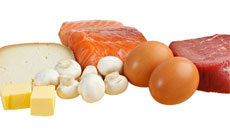Sugar can have a strangle hold on your health if you let it sweet talk you.
Scientifically speaking, sugar is a carbohydrate comprised of carbon, hydrogen and oxygen. It is found naturally in most plants with many types all derived from different sources. This sweet substance is used as an ingredient and in flavouring certain foods as well as a fermenting agent in alcoholic beverages. The white stuff most often referred to as sugar is actually sucrose which is composed of both fructose and glucose, two simple sugars that are often overlooked.
Processed sugar and its many relatives can be found in a surprising number of our foods and beverages without seeming sweet. In addition to the obvious cookies, candies and cakes, we consume condiments, sauces, breads, crackers and fast foods everyday that contain and conceal processed and refined sugars, despite their healthy appearance.
While brushing our teeth on a regular basis, and especially after consuming sugary substances, is essential for combating several negative consequences of sugar, we should also be monitoring our sugar intake for how it affects other parts of our body.
“It is not simply the empty calories that come from sugar but the effect it has on your hormones and organ functioning that makes sugar one of the top offenders in the world of nutrition,” explains Bijal Thoda. Bijal is a registered dietitian with a private practice specializing in weight loss and disease management in Surrey. “It has an effect similar to cocaine on the brain, zaps the power and memory out of it while stimulating it first and then numbing it. It works like a toxin on your liver, just like alcohol does, and paralyses your immune system.”
If that's not enough to make you think twice about your sugar consumption, Bijal's list of negative effects continues. “Sugar also causes an inflammatory response in the body that promotes aging and degeneration,” she says. “It's the perfect recipe for all the degenerative diseases thus increasing your risk of high blood sugar, cholesterol, and blood pressure, heart disease, cancer, arthritis, digestive imbalances [and] intolerances.”
WHY ARE WE ADDICTED?
Sugar, just like many other vices that we can't kick, is addicting. You may think that your need to indulge in dessert or overeat on take-out is all on account of your poor will power – but that's not the case.
Sugar's composition produces a chemical reaction in our brains that spikes our dopamine levels. Excess dopamine evokes feelings of pleasure and leaves us wanting more. Unfortunately, this has a negative effect on our brain's chemistry in the long run and increases our dependence on sugar and other substances with similar qualities, like drugs and alcohol, which give us a temporary 'high'. It's an unstable cycle that affects our health both mentally and physically.
“Sugar can numb your sensation of being able to feel full, thus making you eat more and gain excess weight in addition to increasing the empty calories on your plate that also make you crave more – the end effect being resistant weight gain that in turn is more risk for your heart and life,” adds Bijal.
HOW CAN WE STOP?
Decreasing our damaging intake of sugar has more to do with education than elimination. It may take time in the short-term but learning how to read labels, shop smart and detect hidden sugars can provide many benefits in the long-term, says Bijal.
If you're not willing to give up your sweet treats or fast foods just yet, there are other ways to satisfy your sweet tooth without sacrificing your health.
“Opt for frozen fruit instead of conventional desserts, use fruit puree to make salad dressings and sauces instead of processed sugar,” suggests Bijal. “Cinnamon is an amazing spice that can help with cravings, make foods taste sweeter and improves your blood sugar balance.” She also suggests using natural sweeteners such as stevia which is recommended over artificial sweeteners and can help cut down on cravings.
Sugar can have a strangle hold on your health if you let it sweet talk you.
“Sugar triggers a stress response in your body and in reverse, if you are stressed then you will crave sugar – so to get off the sugar ride, de-stress, be active, eat clean and start with a change in your lifestyle,” says Bijal.
To the uneducated eater, saying no to seconds at the dessert table might seem like saying no to sugar. And it is. But in order to improve your health from the inside out, an understanding of the sweet substance's sour effects will decrease your risk of illness, disease and obesity. That cookie may look good – and it is in moderation – but good health looks even better, especially in abundance.
* Recommendations are not intended to replace the advice of your healthcare professional.






